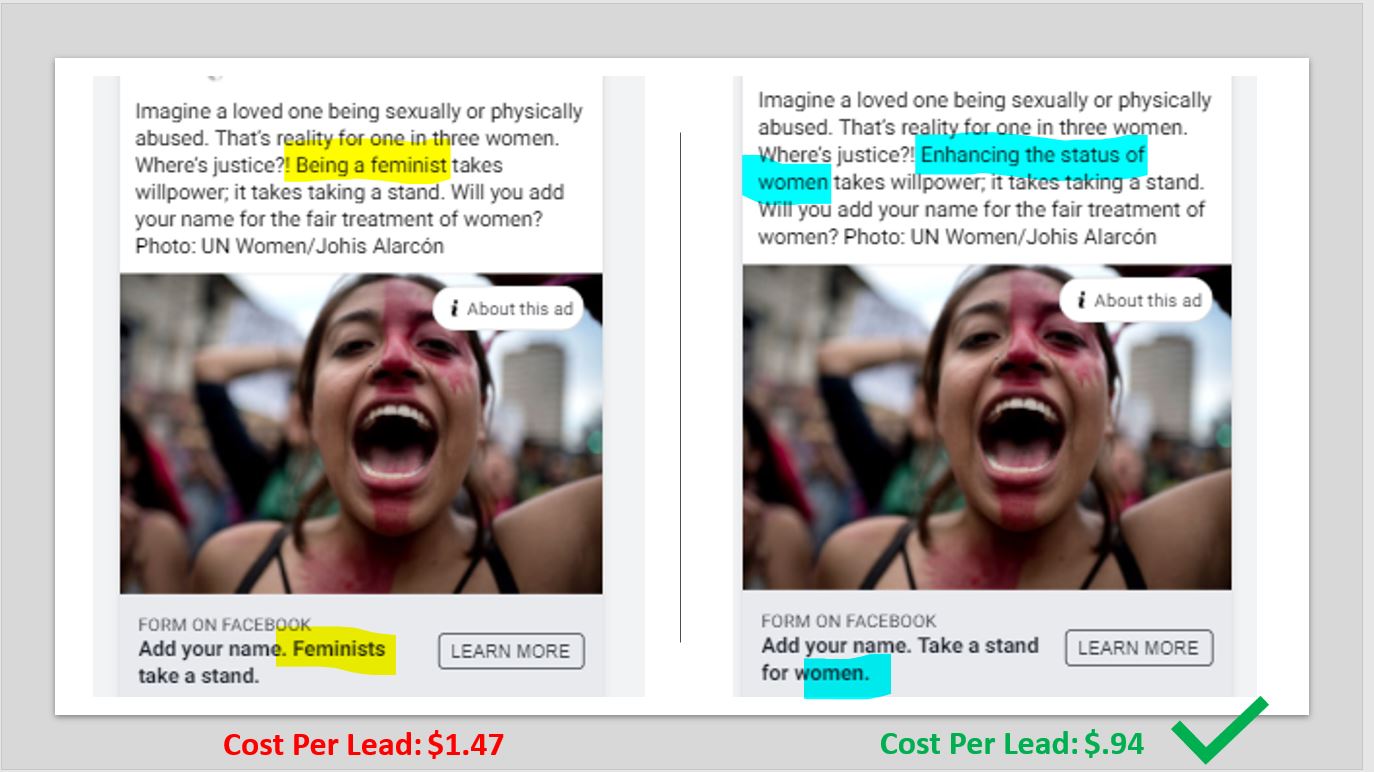Lazy Labels
We write about Identity but how do we best write to an Identity? Does invoking the label help show we know who they are? For example, “as a dog lover…”
What about those health charities out there whose entire approach to ‘tailoring’ of appeals to supporters they know have the disease is tweaking the lead-in sentence to, “as someone living with Disease X you know…”
Caution: Lazy Labels are a Turn-off
Or, maybe the signer of the letter shares an Identity and we invoke it with the “like you, I…”. Again, we’ve done this and, in a word, it’s lazy. Here is a test showing lazy labels are often more than lazy, they’re a turn-off.
These two lead-gen ads were aimed at affinities and interests that often included the word “Feminist” on the Facebook group name or page. These are people who are interacting with pages that very directly and overtly use the Feminist label. One could assume those same people like the label but you know what they say about assuming.
Too often we build lots of assumptions into behavior data. A person donated, they must have liked the appeal. Often, the giving is in spite of the appeal, not because of it. In the case of our Feminists, behavior is not the same as belief structure.
- There is evidence that three people can have the exact same belief structure with one of those persons adopting the “feminist” label in public (e.g. Facebook), the 2nd only being comfortable doing so in private and the 3rd, not at all. Labels matter, but not equally nor in the same direction to all people.
Removing the label (ad on right) lowered the cost per lead by 56%. It would seem there are an awful lot of women associating with Feminist groups in spite of the Label, not because of it.

Kevin
P.S. Who knows what the pending targeting changes in Facebook mean for us in the cause world. It’s impossible to know how loose or restrictive the changes will be based on the press release.
P.P.S. The lambasting of Facebook is popular sport. But, FB did try to prevent all of us from our own worst, lazy instincts by always disallowing direct reference to known attributes in the ad copy – i.e. they prevented some lazy, overt label usage. Whatever targeting confines exist, there will always be a better way to market that digs deeper, relies on more psychological traits and that shows we know them without calling them out.



It would also be quite lazy to assume that testing a feminist label would produce the same results as testing a dog lover label. Just staying… not apples to apples. In any/all cases, understanding what it MEANS (to a donor/prospect) to be a [insert label/identity here] and WHY is the starting point.